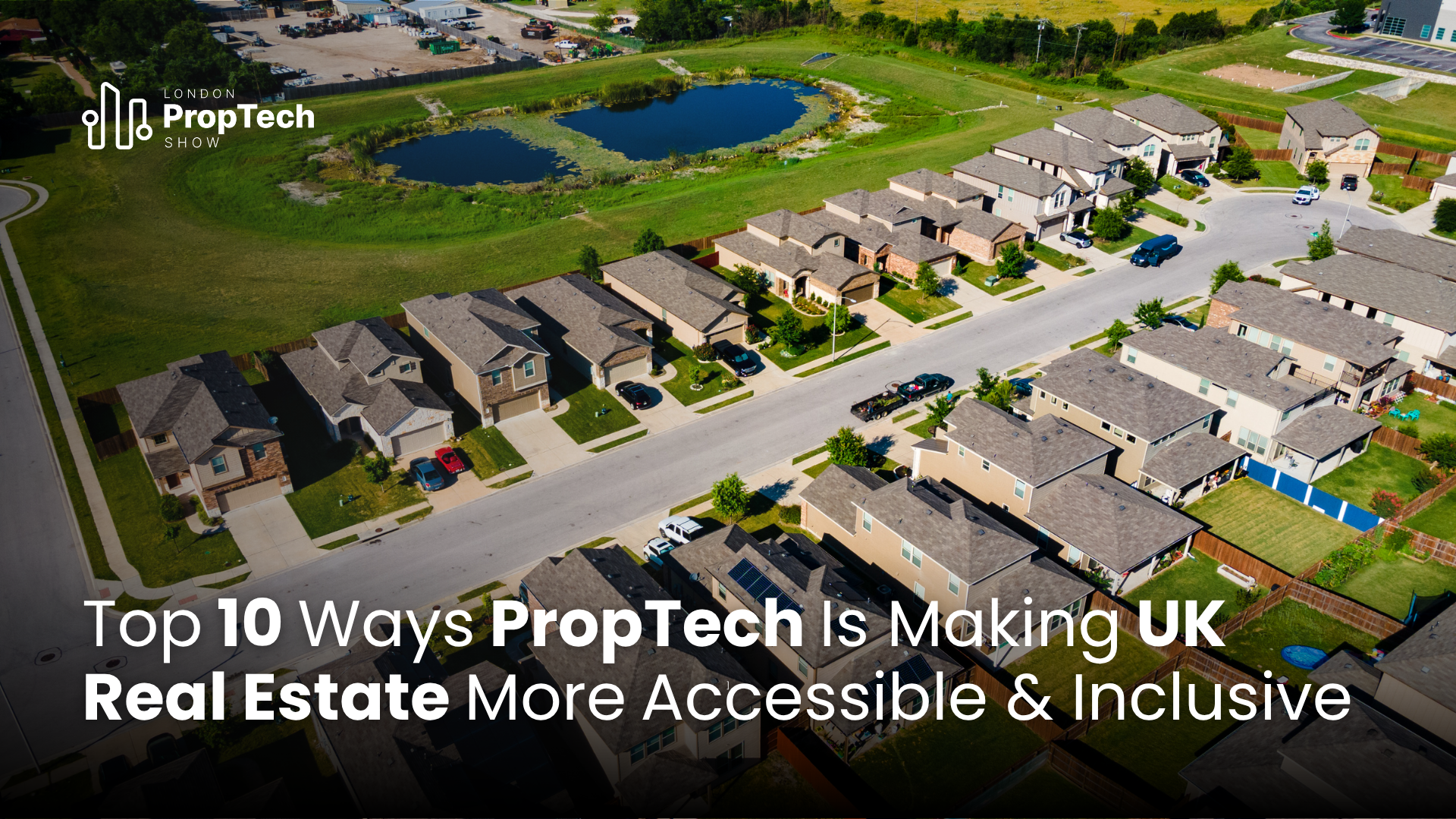The UK real estate sector is undergoing a profound transformation, largely driven by Property Technology (PropTech) innovations. These technologies are not just revolutionizing how properties are bought, sold, rented, and managed, they are actively making real estate more accessible and inclusive. Affordability, transparency, and tenant rights, long-standing challenges that have limited access to adequate housing for many, are being addressed through smart solutions, data analytics, and consumer empowerment.
In this blog, we explore the top 10 ways UK PropTech is reshaping real estate to be fairer, more affordable, and inclusive for all.
1. Digital Marketplaces Enhancing Affordability and Transparency
Digital marketplaces such as OpenRent, Goodlord, and Purplebricks have brought unprecedented affordability and transparency to renting and buying. By reducing or eliminating traditional fees like agency fees and upfront charges and offering self-service platforms, these technologies lower barriers for tenants and buyers. OpenRent, for instance, enables landlords to advertise directly, cutting costs and speeding up lettings.
Beyond cost, these marketplaces provide detailed rental histories, reviews, and verified listings, giving renters confidence and choice. The UK's rental market, valued at nearly £60 billion, is becoming more navigable for thousands of households thanks to such transparent platforms.
2. Empowering Tenant Rights Through Technology
Tenant rights in the UK private rental sector have been historically opaque, leading to exploitation and disputes. PropTech solutions including tenant-focused apps and platforms that digitize lease agreements, rent payment histories, and maintenance reporting are changing this landscape by empowering renters with clear visibility and digital tools. These innovations improve fairness, reduce conflicts, and enable better landlord accountability.
Digitizing lease contracts and rent tracking ensures that tenants have documented proof of transactions and rights, giving them stronger negotiation power and peace of mind in their housing arrangements.
3. AI-Driven Tenant Referencing and Fairer Credit Assessment
Traditional credit checks often exclude first-time renters, immigrants, and those with thin credit files. AI-driven tenant referencing platforms such as CreditLadder and Canopy utilize open banking data, affordability algorithms, and alternative credit scoring, enabling fairer and faster assessments. This opens renting opportunities for previously marginalized groups.
Studies show that AI referencing tools can reduce application processing times by 50% and increase successful tenant matches by 30%, improving access without compromising landlord risk management. Resultantly, tenancies in diverse urban neighbourhoods have increased, enhancing inclusivity.
4. Crowdfunding Platforms Democratizing Property Investment
Property investment has traditionally been confined to high-net-worth individuals and institutions. Crowdfunding platforms like Property Partner, The House Crowd, and Landbay allow smaller investors to pool funds, buying shares in residential or commercial developments. This democratization diversifies ownership and offers access to investment returns for a wider socioeconomic audience.
In 2024-25, UK PropTech crowdfunding platforms saw a 40% increase in active investors with an average ticket size under £5,000. Such inclusion has fueled urban regeneration projects in underserved areas, linking finance to community development.
5. Virtual Reality and Augmented Reality Breaking Physical Barriers
VR and AR technologies deployed by startups like Matterport and ever.com enable virtual tours and immersive property viewing. For people with disabilities, those living overseas, or those unable to attend physical viewings due to health or care responsibilities, VR offers an invaluable solution. Virtual open houses and walkthroughs improve inclusivity by expanding who can participate in property decisions.
Research by the UK PropTech Association found that 60% of rental and purchase decisions now incorporate virtual tours. This tech reduces wasted time and expands the market reach of landlords and sellers, fostering more inclusive access.
6. Smart Home Tech Reducing Energy Costs and Supporting Vulnerable Tenants
Innovation in smart home devices, like Switchee’s energy management system, targets fuel poverty among low-income tenants by optimizing heating and energy use. By integrating IoT sensors and AI, properties reduce energy wastage, lowering bills and improving living standards.
The UK government’s Fuel Poverty Strategy recognizes smart energy monitors as pivotal. Early deployments report 20-25% reductions in energy consumption, directly supporting sustainability goals while enhancing affordability and comfort for renters vulnerable to energy price shocks.
7. Blockchain Enhancing Security and Fairness in Transactions
Blockchain technology is gaining traction as a tool for secure, transparent, and immutable property transaction records. Startups like Propy and ShelterZoom facilitate “smart contracts” for home sales and tenancies, reducing fraud and streamlining conveyancing.
Blockchain adoption reduces delays and costs due to clearer title histories and reduced paperwork. This can open historically excluded groups, like ethnic minorities, to safer property transactions, leveling the playing field in a sector often beset by opacity.
8. Planning Tech that Prioritizes Affordable Housing Development
Planning is key to increasing affordable supply. Platforms like Geovation and Placefirst use AI and open data to identify development opportunities and de-risk affordable housing projects. By accelerating approvals and optimizing site acquisition, these PropTech tools support councils and developers in meeting housing targets with inclusivity.
The 2025 UK Housing White Paper highlights digital planning solutions as fundamental to tackling housing shortages. Pilot schemes using PropTech have cut planning timelines by 30% for affordable schemes, allowing faster delivery in high-need areas.
9. Transparent Maintenance and Repair Systems Improving Tenant Experience
Apps such as Fixflo and Plentific provide tenants direct communication channels to report repairs. Real-time tracking and automated landlord notifications increase accountability and service speed, crucial for vulnerable renters in social housing.
Better repair transparency reduces disputes and homelessness risk, promoting stability. Tenant satisfaction surveys from pilot social housing projects using these tools increased by over 40%, reflecting genuine inclusion and empowerment.
10. Digital Platforms for Community Engagement and Empowerment
Fostering community voices is vital for inclusive housing. PropTech platforms like Commonplace and Neighborly enable digital consultation on neighbourhood planning and management. Residents can submit feedback, vote on improvements, and access local data, improving social cohesion and trust.
Local authorities using these platforms report higher engagement levels, especially among younger and marginalized populations, aligning with social inclusion policies and creating empowered urban communities.
Conclusion: The Inclusive Impact of PropTech in 2025 and Beyond
The UK’s PropTech ecosystem is not just innovating property transactions and management, it's making real estate more accessible and inclusive across tenant demographics and investor profiles. Technologies that enhance affordability, tenant rights, investment diversity, and engagement are reshaping the housing landscape to be more equitable.
As PropTech matures, collaboration with government policy and funding will accelerate solutions that address affordability crises and social disparities.
By championing transparency, reducing costs, and empowering tenants and communities, PropTech is helping unlock real estate’s potential as a shared asset built for everyone’s benefit.


